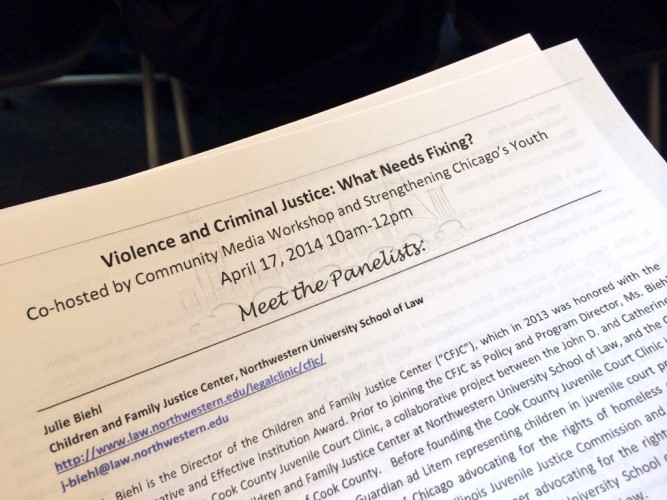It costs Illinois $111,000 a year to imprison one young person yet, there is no training and rehabilitation programs to keep them from returning to prison, advocates said Thursday.

“Why are the same communities sending people to prison for the last 50 years?” said Anthony Lowery, director of policy and advocacy of Safer Foundation. “Young people come out even more disconnected from their community family when they first came in.”
Education and employment decrease recidivism, studies show, Lowery said. However, these resources are not given to those who have been incarcerated,
Lowery spoke during a panel discussion of violence and criminal justice workshop held at Columbia College Chicago, 1104 S. Wabash Ave. The program was sponsored by the Community Media Workshop.
Juveniles’ need for support from the community was strongly emphasized by the panelists. Due to the stigma attached to incarceration, major employers do not give them a second chance, even when results show that rehabilitation can work, said Lowery.
Father David Kelly, of Precious Blood Ministry of Reconciliation, said the justice system is too heavily depended upon when the support is needed in the communities.
“Young people need a safe environment where they can be connected to the resources they need,” he said.

So far, organizations such as the Safer Foundation and the Illinois Collaboration on Youth have put effort on reducing incarceration through programs within the state.
According to data from the Collaboration’s program, Redeploy Illinois, at least $100,000 is saved when placing a youth in the program rather than imprisoning them. It shows that if young people are kept at home and in school, and check their progress through counseling and programs, it can save money and cut recidivism. Redeploy Illinois has also saved Illinois nearly $60 million in its nine years. It is a program chosen to be used by many counties in the state but not the two largest, Cook and Sangamon.
“When people are provided with rehabilitation and redemption, it increases public safety,” Biehl said.
“It’s easy to get [the public] to be fearful, but it’s hard to get them to care,” said panelist Charles Perry, director of community organizing at Westside Health Authority.

















Be First to Comment